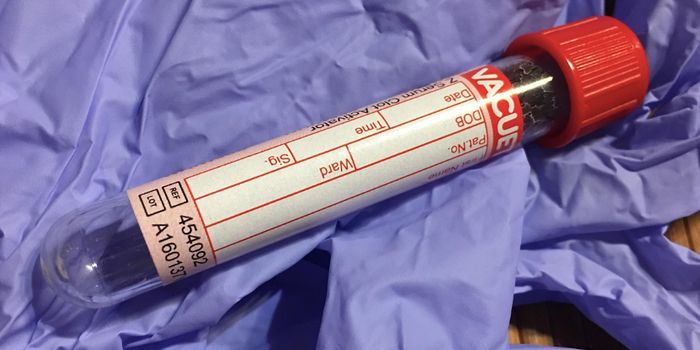Depression affects millions of people worldwide, yet it’s an illness that’s still highly stigmatized. As with many illnesses, some patients respond to treatment and some don’t. But a
new research suggests that testing patients for inflammatory biomarkers could reveal those who could benefit from more aggressive medication regimen.

Clinical depression is different than sadness following a traumatic life event, such as the loss of a loved one. Patients with clinical depression are diagnosed by trained physicians based on criteria set by the Diagnostic and Statistical Manual of Mental Disorders (DSM). Currently, an estimated 14.8 million Americans are afflicted with depression. And as the mental condition is tied to physical wellness, the incidence of depression is ever increasing.
Generally, patients with depression are treated with a combination of medication (antidepressants) and psychological counseling. But the success rate of these treatments is variable, and doctors often have to engage through trial and error to arrive at the correct medication dose for their patients. Could blood-borne biomarkers eliminate this trial and error?
Based on the belief that inflammation drives stress which interferes with the actions of antidepressants, researchers at the King’s College London wondered whether inflammatory proteins could point to hard-to-treat cases. They looked at 140 people with depression, and isolated two biomarkers of inflammation: macrophage migration inhibitory factor (MIF), and interleukin-1beta.
In their study, the researchers found presence of these two biomarkers corresponded with decreased response to treatment. That is, patients with high levels of these proteins were less likely to respond to traditional antidepressants like selective serotonin reuptake inhibitors (SSRIs) and tricyclic compounds.
"About a third of patients might have these inflammatory markers and they would be people we might encourage to go on more aggressive treatment," said Carmine Pariante, the senior study author.
By contrast, the biomarker could alert doctors to go easy on those who are more likely to respond to the medications. After all, antidepressants may be safe, but they are not without side-effects. "We would not want to go in prescribing too much medicine if it's not necessary, but we would want to escalate people sooner rather than later if they need it," said Pariante.
Some caveats of the study include the limited size and the need for validation in a larger clinical trial. But the team is excited, as this is the first study of its kind to point towards personalized therapy for a mental illness like depression. "Being able to target those people with depression who don't respond to medication would be one of the most exciting steps forward in the treatment of mental illness for decades," said Marjorie Wallace, chief executive of SANE, a UK mental health charity organization.
Additional source:
BBC









